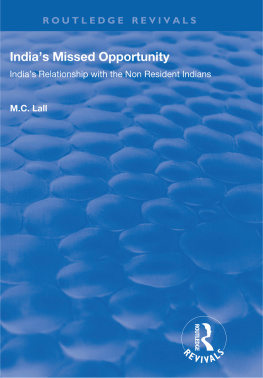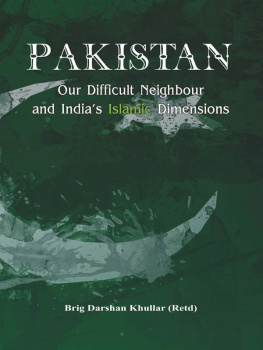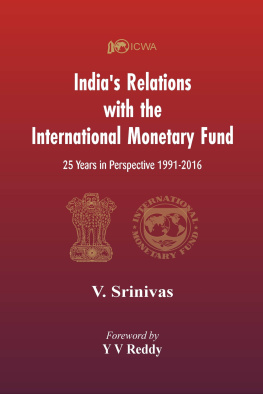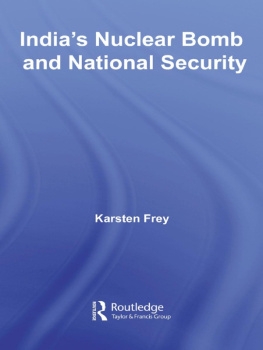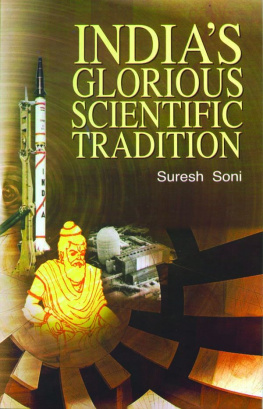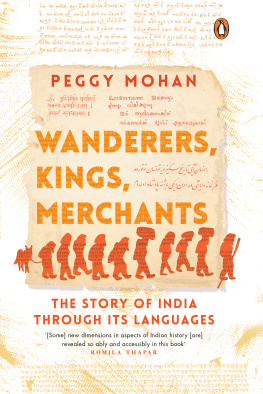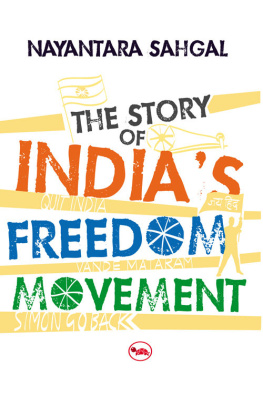India's Missed Opportunity
Vande Mataram
India's Missed Opportunity
India's relationship with the Non Resident Indians
M.C. LALL PhD.
London School of Economics and Political Science
First published 2001 by Ashgate Publishing
Reissued 2019 by Routledge
2 Park Square, Milton Park, Abingdon, Oxon, OX14 4RN
52 Vanderbilt Avenue, New York, NY 10017
Routledge is an imprint of the Taylor & Francis Group, an informa business
Copyright M.C. Lall 2001
All rights reserved. No part of this book may be reprinted or reproduced or utilised in any form or by any electronic, mechanical, or other means, now known or hereafter invented, including photocopying and recording, or in any information storage or retrieval system, without permission in writing from the publishers.
Notice:
Product or corporate names may be trademarks or registered trademarks, and are used only for identification and explanation without intent to infringe.
Publisher's Note
The publisher has gone to great lengths to ensure the quality of this reprint but points out that some imperfections in the original copies may be apparent.
Disclaimer
The publisher has made every effort to trace copyright holders and welcomes correspondence from those they have been unable to contact.
A Library of Congress record exists under LC control number:
ISBN 13: 978-1-138-63737-5 (hbk)
ISBN 13: 978-1-315-20518-2 (ebk)
This is an important book that deserves to be read not merely by those with an interest in contemporary Indian politics, but by anyone who is concerned with the changing nature of international society and of the assumptions and preconceptions that underpin the foreign policies of its member states. As we enter the twenty first century it is clear that people everywhere are on the move, both legally and illegally. Already, the result is a world where the demographic and political maps diverge, often dramatically. Only a small minority of the worlds' states conform to the nationalist ideal of a nation state - one culture one state. Most are multi-cultural, home to diaspora communities, some of which have been long established, while others are much more recent.
How are governments to react to this phenomenon, which although not new in itself, has gained much greater visibility since the end of the cold war and in the context of globalisation? If we discount the pathological response of ethnic cleansing, the choice comes down to some variety of assimilation or accepting that communities can have dual loyalties and that therefore the presence of diasporas should be regarded as a foreign policy asset rather than a liability. Historically, the emphasis was on assimilation, although some countries that regularly exported people in significant numbers - China and Ireland for example - also benefited from continuing links with the enclave communities that their nationals established in foreign countries. With the development of the global economy, they have been able to look to these outreach communities as trading partners, sources of private foreign investment, and, more generally, as diplomatic 'friends at court'.
The interest of the Indian case lies in the fact that India was not one of these countries. At independence in 1947 the Indian diaspora was already large and widely spread over the face of the earth, and in many cases both affluent and deeply involved in international trade. Moreover, most Indian communities remained closely knit and were understandably reluctant to shed their cultural identities. Yet the Government of India did not initially regard overseas Indians as potential ambassadors, advising them instead to identify with the countries in which they were settled. In adopting this policy the Congress party leadership deliberately reversed the policy it had pursued prior to independence when it had been much concerned with the welfare of Indians throughout the British Empire. With independence, however, they believed that the national question had been resolved since theirs was a strictly secular and civic conception of the nation-state. The picture began to change in the early 1990s and today there is a more concerted Indian effort to court overseas Indians in the interests of overcoming some of the traditional constraints on India development.
Marie Lall's book takes an unsentimental and clear headed look at the legacies of the past and the problems that still need to be overcome if the country is to harness the energies not only of its own citizens but of overseas Indians as well. The world will not be fitted back into so many neat national containers so that this is a problem that many other countries will need to address. The Indian story may provide salutary lessons for them too.
James Mayall
January 2001
First of all I would like to thank Professor James Mayall for all the help and advice in completing this book which started out as a PhD thesis under his supervision. His moral support was especially appreciated during my four year long stay in India, where he continued guiding me, yet gave me the space needed to pursue the research in tune with local pace.
Thanks also goes to Professor Fred Halliday, who seven years ago decreed that I was not mad in wanting to start research on an area I had so little knowledge on, despite it requiring the learning of a new culture and a new language. It was due to his encouragement that I set out to do this work.
At JNU, New Delhi, I would like to thank Professor Aswini Ray, who allowed my two-year research affiliation at the Centre for Political Studies and was always available for friendly advice.
Benoi Thomas, Nihar R. Das and Rajesh Jha have to be mentioned for their help in getting hold of government, and especially parliamentary material, to which I had no access.
Furthermore I also want to thank Dr Aran Mehta and Prof. Aasha Kapur Mehta for their help and friendship during my stay in India. The coffee cum pop corn sessions during which I could bounce my ideas were a tremendous boost at all times during my research.
Thanks also goes to Tamara and David Delapraz who, for months on end, lent me their house in Delhi to use as an office when my flat became too small.
Turning the thesis into a book was not a simple task, but was greatly helped along by Dr Andrew Wyatt. Discussions with him and his proofreading proved invaluable.
Finally and most importantly I want to thank my husband, Viren Lall for his patience whilst he watched the 'booklet' grow. His computer expertise, emotional, physical and moral support were essential to finishing first the thesis and then the book in this millennium. I am more indebted to him than I could possibly express.
This book analyses the relationship of the Government of India with the Non Resident Indians since independence. In particular it is concerned with the dramatic shift in the Congress party's policy at the time of independence. Before August 1947 Congress was very concerned with the fate of the expatriate Indians. The policy adopted in 1947 by Nehru's government not only excluded the issue of expatriate Indians totally from Indian foreign and domestic policy formulation, but actively encouraged the Diaspora to integrate into their host societies. It then goes on to analyse the reason for the development of the relationship, or rather the lack of a relationship between the Diaspora and the Indian Government and how that in turn affected the economic development of the India to this day.


